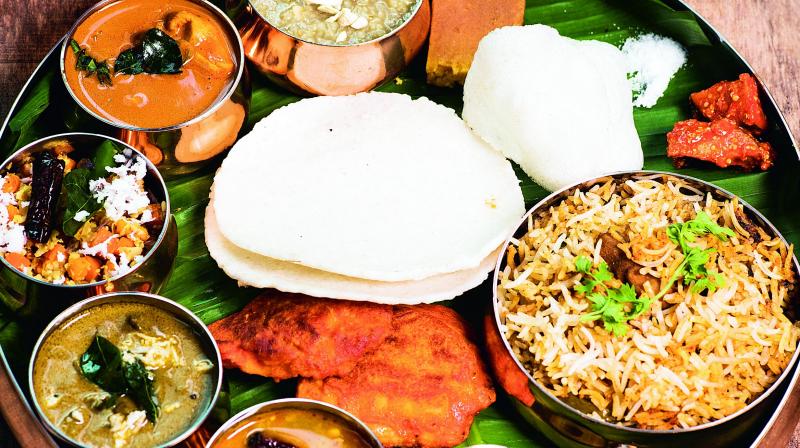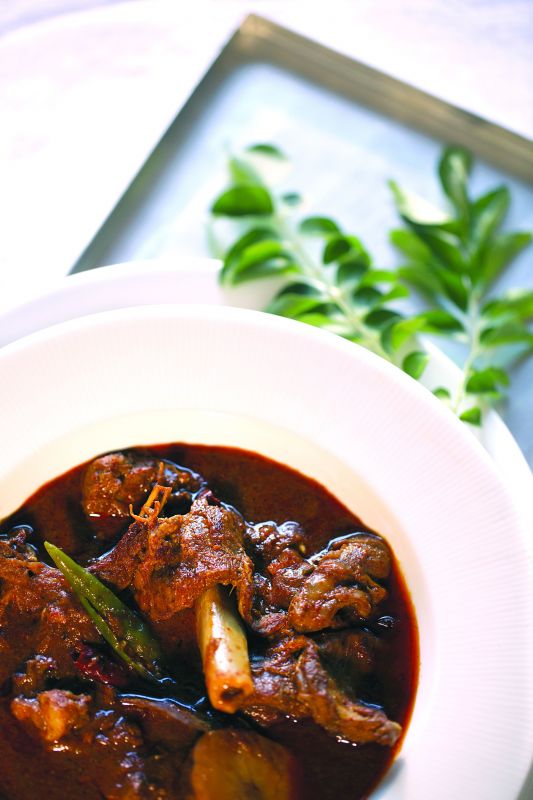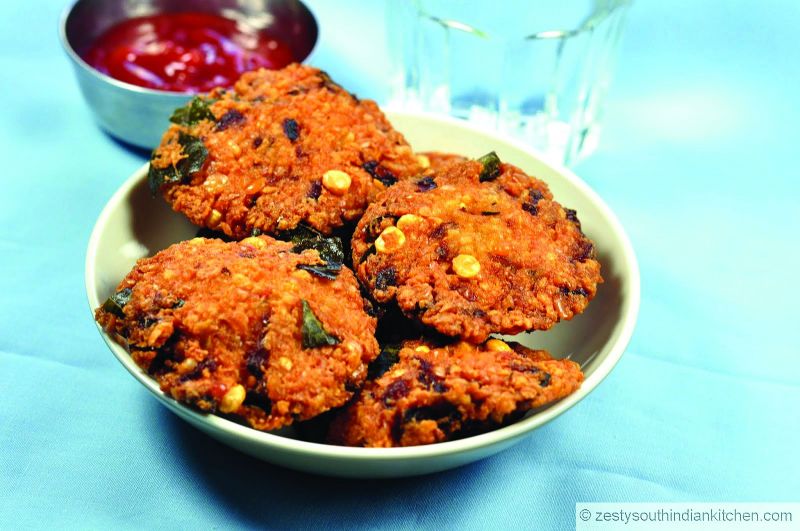Feeling hot, hot, hot!

The cornerstone of Indian food is chilli. It’s the one ingredient that the world identifies with our cuisine. There is no recipe, however bland, that wouldn’t have at least a pinch of chilli powder or a mild chopped seedless chilli. Surprisingly, chillies only entered our diet 400 years ago through the Portugese at the end of the 15th century. Domesticated first in Mexico around 7,000 BC, legend has it that Columbus introduced them to Europe. By 1650, chilli was found on tables and cuisines worldwide. While the ubiquitous Kashmiri chilli has become a superstar in India and abroad, certain regional chillies are less well known but equally tasty and important.
Southern spice
Take South India’s Bedgi or Byadagi chilli for example. Recently, I have come across it in many recipes and finally found a grocer in Mumbai who stocks it. My search for this spicy fruit (yes, chillies belong to the Solanaceae family, with cousins like the tomato and aubergine) led me to Smita Deo’s kitchen. Her cookbook, Karwar to Kolhapur via Mumbai, is a mainstay in my kitchen and uses this chilli liberally in recipes.
“The Bedgi or Byadagi chilli is mainly grown in Karnataka and is named after the town Byadagi,” says Smita. “It is used in our fish, lentil and vegetable curries, sambar, and other spicy preparations. Though not very spicy, it gives the dish its beautiful bright red colour and a unique taste. This chilli is used along with coriander seeds and coconut for the basic gravy in a Karwari or Udupi cuisine.” Smita uses these to make fish curry, her vegetable raandois (vegetable curries) and also her favourite kandya chutney (onion chutney) that she has with crisp dosas.
My quest to uncover the fiery genius of the bedgi led me on a culinary journey to Mysuru. It is so popular it has the second largest turnover among all chilli varieties in India! Dishes like bisi belle bhat, sambhar, chutneys and Gowda style chicken curry are incomplete without it. At ‘La Uppu’ restaurant at The Grand Mercure, Mysuru, Chef Mukul Jha prepares a traditional Karnataka thali with specialities using bedgi chillies.
Storage and selection
Available in fresh, dried and powdered form, look for the unwrinkled, bright and unbroken ones. Like all ground spices, the pungency decreases in powder form. Whole dried bedgi chillies will stay for a year if stored in a cool, dry and dark place. Exposure to light can affect the colour.
Curative and cosmetic properties
Did you know that chillies have more vitamin C per gram than many oranges? High in vitamins A and C, chillies are used to alleviate sore throats and aid in certain rheumatic disorders too. They actually cool down the system in hot weather as the capsaicin dilates blood vessels to increase circulation and encourage perspiration! The bedgi is in high demand in Europe and USA in the beauty industry because the red oil that is secreted from the pod of the chilli — Oleoresin — is an ingredient in lipsticks and nail polishes (Ladies, it gives us that pillar-box red that we covet!).
Manday mutton curry
Lamb boneless 300 gm
Onion 12 gm
Tomato 12 gm
Ginger 10 gm
Green chilli 5 gm
Black pepper 1 gm
Garlic 20 gm
Bedgi chilli 5 gm
Fresh grated coconut 40 gm
Curry leaves 5 gm
Cinnamon stick 1 gm
Cloves 1 gm
Coriander whole 5 gm
Refined oil 60 gm
Coconut oil 2 gm
Mustard seeds 5 gm
Turmeric powder 6 gm
Salt 10 gm
Cashew 5 gm
Cumin powder 1 gm
Garam masala powder 8 gm
Poppy seeds 40 gm
Method
Take a bowl, add tomato, onion, black pepper, poppy seeds, cinnamon sticks, cloves, cashew, grated fresh coconut, coriander whole, cumin and bedgi red chilli, make a smooth paste with a little water if required and keep it aside for 30 to 40 min.
Boil the cubed mutton with ginger paste, garlic paste and turmeric. When the mutton is cooked well, drain water and keep aside.
Add oil in a pan and heat it. Add the ground paste and cook well. When the oil oozes out of the paste, add the mutton to the mixture and sauté for five min; add a little water and simmer the manday mutton curry with a covered lid for 10 min.
Serve the manday mutton curry with steamed rice or chapati.
Paruppu vada
Chana dal 80 gm
Whole Byadagi red chilli 10 gm
Salt 2 gm
Refined oil 25 ml
Whole jeera 3 gm
Curry leaf 2 gm
Green chilli 1 gm
Saunf 2 gm
Ginger 2 gm
Onion 10 gm
Jeera powder 4 gm
Method
Soak the chana dal with green chilli and fennel for two hours with water, drain the water and make a smooth paste of the mixture. Add the salt, finely chopped ginger, garlic and onion, fresh coriander and curry leaves. Mix it well before making a flat round dumpling and deep fry and remove them when light brown in colour. Serve with Kara chutney.
Kara chutney
Tomato 100 gm
Onion 10 gm
Byadagi red chilli 20 gm
Red chilli powder 50 gm
Refined oil 30 ml
Tamarind pulp 5 gm
Salt 20 gm
Asofoetida 1 gm
Chana dal 10 gm
Mustard seeds 1 gm
Curry leaves 1 gm
Method
Take a bowl and add tomato, onion, bedgi chilli, garlic, curry leaves, tamarind and asafoetida. Make a smooth paste of the mixture. Finish it with salt, fried curry leaves and mustard.
Mysuru chicken kebab
Chicken leg boneless 200 gm
Ginger-garlic paste 20 gm
Byadagi chilli 15 gm
Rice flour 20 gm
Salt 10 gm
Egg 1/2
Rice powder 5 gm
Gram flour powder 5 gm
Refined flour 5 gm
Jeera powder 10 gm
Garam masala powder 5 gm
Refined oil 30 ml
Mustard seed 4 gm
Curry leaf 3 gm
Method
Take a wide glass bowl, add the cubed chicken boneless, ginger and garlic paste, bedgi red chilli paste, mix well with the chicken and keep aside for 30 min.
Add the powdered spices like jeera powder, garam masala powder, salt and egg, mix it further, then add the rice powder, gram flour powder, refined flour powder. It will look like a dark reddish coated chicken which needs to be deep fried. Garnish with fried curry leaves and mustard.
Recipes courtesy, Chef Mukul Jha, Executive Chef, Hotel Grand Mercure, Mysuru



